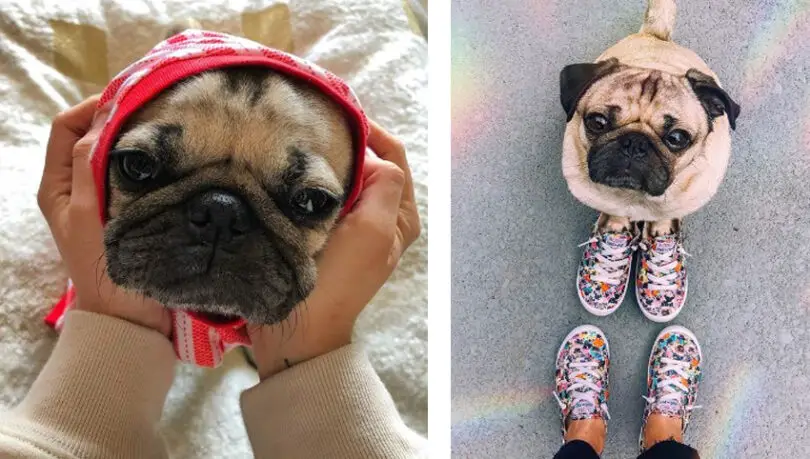As devoted pug parents, our primary goal is to ensure the happiness and well-being of our furry companions. However, even with the best intentions, it’s possible to inadvertently hurt our pug’s feelings. Understanding the subtle cues and being mindful of our actions can strengthen the bond between us and our pugs. Here are six unintentional ways you might be hurting your pug’s feelings without even realizing it.
- Lack of Attention: Pugs thrive on human interaction and can feel neglected if left alone for extended periods. If your schedule keeps you away for most of the day, consider incorporating quality time into your routine. Interactive play, cuddles, and engaging activities help strengthen the emotional connection with your pug.
- Inconsistent Routine: Pugs are creatures of habit and find comfort in routines. Sudden changes to feeding times, walks, or play sessions can be disorienting for them. Strive for consistency in your pug’s routine to provide a sense of security and stability.
- Harsh Tone or Discipline: Pugs respond best to positive reinforcement, and a harsh tone or punitive discipline can be emotionally distressing for them. Opt for gentle correction and positive reinforcement to encourage good behavior. Pugs are sensitive souls, and a stern approach can hurt their feelings more than correct their behavior.
- Ignoring Signals of Discomfort: Pugs communicate through body language, and ignoring their signals of discomfort or distress can be hurtful. If your pug shows signs of anxiety, fear, or discomfort, address the situation promptly. Understanding their cues fosters a trusting and supportive relationship.
- Limited Socialization: Pugs are social animals that enjoy the company of both humans and other dogs. If your pug is consistently isolated or lacks opportunities for socialization, they may feel lonely or anxious. Arrange playdates, visits to the dog park, or other social activities to keep them emotionally fulfilled.
- Overlooking Health Needs: Pugs may not always vocalize their pain or discomfort, so it’s crucial to stay vigilant about their health. Regular veterinary check-ups, attention to grooming needs, and a comfortable living environment contribute to their overall well-being. Neglecting these aspects can make your pug feel unattended and unloved.
Conclusion:
Being attuned to your pug’s emotions and needs is an essential aspect of responsible pet ownership. While our actions are often well-intentioned, it’s vital to consider the impact they may have on our pug’s feelings. By fostering a loving and supportive environment, we can ensure that our pugs lead happy and emotionally fulfilled lives. After all, a happy pug is a reflection of a caring and attentive pug parent.


Leave a Comment